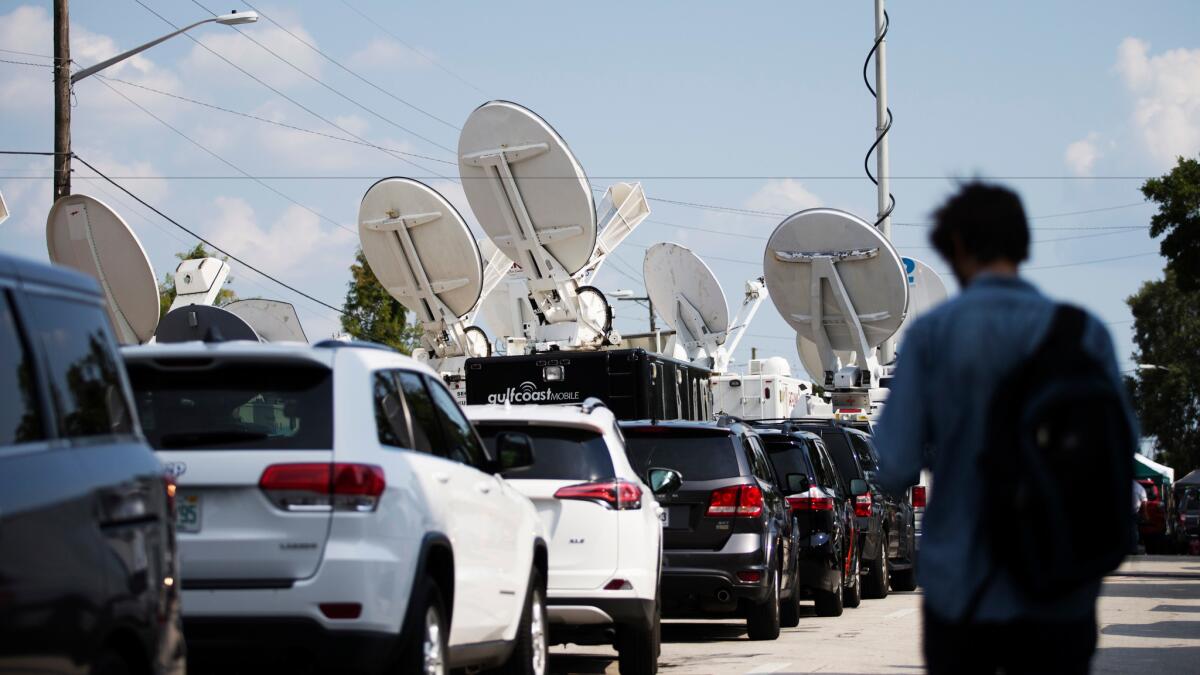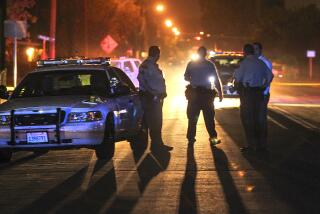It’s time for the media to deny mass killers the fame they seek

Television news trucks are lined up near the scene of the mass shooting at the Pulse nightclub in Orlando, Fla., on June 13.
To the editor: Kudos to public officials and media outlets who would deny a measure of fame to massacre perpetrators by refusing to mention their names. (“Are the media complicit in mass shootings?” June 18)
Four years ago, Colorado Gov. John Hickenlooper referred to the 2012 Aurora movie theater killer only as “Suspect A.” Lately, journalists at CNN and some officials have refused to say the Orlando shooter’s name.
While such fame-denying approaches may not preclude social media from displaying the killers’ names, keeping them out of newspapers and books — not nearly so ephemeral as Internet articles — might well serve the purpose.
Hickenlooper’s approach seems well worth emulating. Try referring to mass killers only by date, location and number of victims. For example, use “2016-Orlando-49” for the most recent mass shooter, and “2015-San Bernardino-14a” could work for the primary killer in December (his spouse and accomplice could be designated by “14b”).
I hope The Times’ mention of the Orlando and Aurora killers’ names, though germane to the subject report, is the last time I see them in print.
Christine Hagel, Santa Maria
..
To the editor: The age of intense media coverage of mass murders may have begun with Charles Starkweather. Barely 19, he murdered nine people in and around Lincoln, Nebraska in January 1958. After a week on the lam, Starkweather killed once more, whereupon he was captured.
Four months later, he was tried, convicted and sentenced to death. Starkweather’s appeals were denied, and he was executed in June 1959 at age 20.
While this teenage psychopath’s sordid saga captivated the national press for 18 months, his murderous rampage long thereafter provided fodder for movies and music, which include the 1973 film “Badlands,” Bruce Springsteen’s 1982 song “Nebraska,” and Billy Joel’s 1989 hit “We Didn’t Start the Fire,” with its 1950s era-evoking line, “Starkweather homicides, children of thalidomide.”
Such perverse examples of enduring infamy abound. A concerted effort to deny fame to mass killers is long overdue.
Devra Mindell, Santa Monica
Follow the Opinion section on Twitter @latimesopinion and Facebook
More to Read
A cure for the common opinion
Get thought-provoking perspectives with our weekly newsletter.
You may occasionally receive promotional content from the Los Angeles Times.





